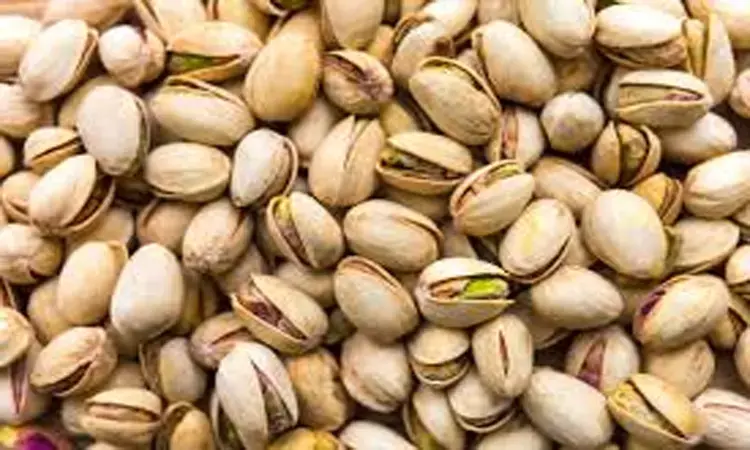- Home
- Medical news & Guidelines
- Anesthesiology
- Cardiology and CTVS
- Critical Care
- Dentistry
- Dermatology
- Diabetes and Endocrinology
- ENT
- Gastroenterology
- Medicine
- Nephrology
- Neurology
- Obstretics-Gynaecology
- Oncology
- Ophthalmology
- Orthopaedics
- Pediatrics-Neonatology
- Psychiatry
- Pulmonology
- Radiology
- Surgery
- Urology
- Laboratory Medicine
- Diet
- Nursing
- Paramedical
- Physiotherapy
- Health news
- Fact Check
- Bone Health Fact Check
- Brain Health Fact Check
- Cancer Related Fact Check
- Child Care Fact Check
- Dental and oral health fact check
- Diabetes and metabolic health fact check
- Diet and Nutrition Fact Check
- Eye and ENT Care Fact Check
- Fitness fact check
- Gut health fact check
- Heart health fact check
- Kidney health fact check
- Medical education fact check
- Men's health fact check
- Respiratory fact check
- Skin and hair care fact check
- Vaccine and Immunization fact check
- Women's health fact check
- AYUSH
- State News
- Andaman and Nicobar Islands
- Andhra Pradesh
- Arunachal Pradesh
- Assam
- Bihar
- Chandigarh
- Chattisgarh
- Dadra and Nagar Haveli
- Daman and Diu
- Delhi
- Goa
- Gujarat
- Haryana
- Himachal Pradesh
- Jammu & Kashmir
- Jharkhand
- Karnataka
- Kerala
- Ladakh
- Lakshadweep
- Madhya Pradesh
- Maharashtra
- Manipur
- Meghalaya
- Mizoram
- Nagaland
- Odisha
- Puducherry
- Punjab
- Rajasthan
- Sikkim
- Tamil Nadu
- Telangana
- Tripura
- Uttar Pradesh
- Uttrakhand
- West Bengal
- Medical Education
- Industry
Pistachio consumption reduces blood sugar, systolic BP and increases HDL levels: Study

Iran: Pistachio consumption could improve some components of metabolic syndrome (MetS), including triglyceride, systolic blood pressure, HDL, and fasting blood glucose, a recent study in Nutrition Reviews has stated. However, the supplementation does not affect anthropometric indices and diastolic blood pressure.
Nut consumption has been shown to reduce the risk of diabetes and coronary heart disease and promote healthy body weights due to their favorable macronutrient profile. Pistachios, compared to other nuts have a balanced nutrition profile with lower fat [polyunsaturated fatty acids (PUFAs) and monounsaturated fatty acids (MUFAs)], higher protein, fiber (both soluble and insoluble), potassium, phytosterols, γ-tocopherol, vitamin K, and xanthophyll carotenoids. They are also known for their high antioxidant potential
Previous observational and experimental studies have evaluated the effects of pistachio intake on MetS but have yielded inconsistent results. Soudeh Khanamani Falahati-Pour, Rafsanjan University of Medical Sciences, Rafsanjan, Iran, and colleagues aimed to determine the effect of pistachio consumption on MetS components by performing a systematic review and meta-analysis of data from randomized controlled trials.
For this purpose, the researchers searched the online databases from 1986 to 2021. The study included English-language RCTs on pistachio intake that provided outcomes on hypertension, hyperglycemia, hypertriglyceridemia, and high-density lipoprotein (HDL). Results are presented as pooled mean differences (MDs) between intervention and control groups.
The inclusion criteria for the systematic review and meta-analysis were met by seventeen RCTs including 940 adults.
Salient findings of the study include:
- Pistachio supplementation significantly reduced systolic blood pressure (BP; MD, –2.89 mmHg), triglycerides (MD, –16.76 mg/dL), fasting blood glucose (MD, –3.62 mg/dL) and increased HDL (MD, 1.43 mg/dL) levels.
- There were not observed considerable changes in waist circumference, diastolic BP, and body mass index.
The researchers conclude, "the results of this study show that consumption of pistachios could improve some MetS components, including systolic blood pressure, triglyceride, fasting blood glucose, and HDL levels, without affecting anthropometric indices and diastolic BP."
Reference:
Fatemeh Baghery, Noushin Mohammadifard, Soudeh Khanamani Falahati-Pour, The effect of pistachio supplementation on metabolic syndrome and its components in adults: a systematic review and meta-analysis of randomized controlled trials, Nutrition Reviews, 2022;, nuac027, https://doi.org/10.1093/nutrit/nuac027
Dr Kamal Kant Kohli-MBBS, DTCD- a chest specialist with more than 30 years of practice and a flair for writing clinical articles, Dr Kamal Kant Kohli joined Medical Dialogues as a Chief Editor of Medical News. Besides writing articles, as an editor, he proofreads and verifies all the medical content published on Medical Dialogues including those coming from journals, studies,medical conferences,guidelines etc. Email: drkohli@medicaldialogues.in. Contact no. 011-43720751


